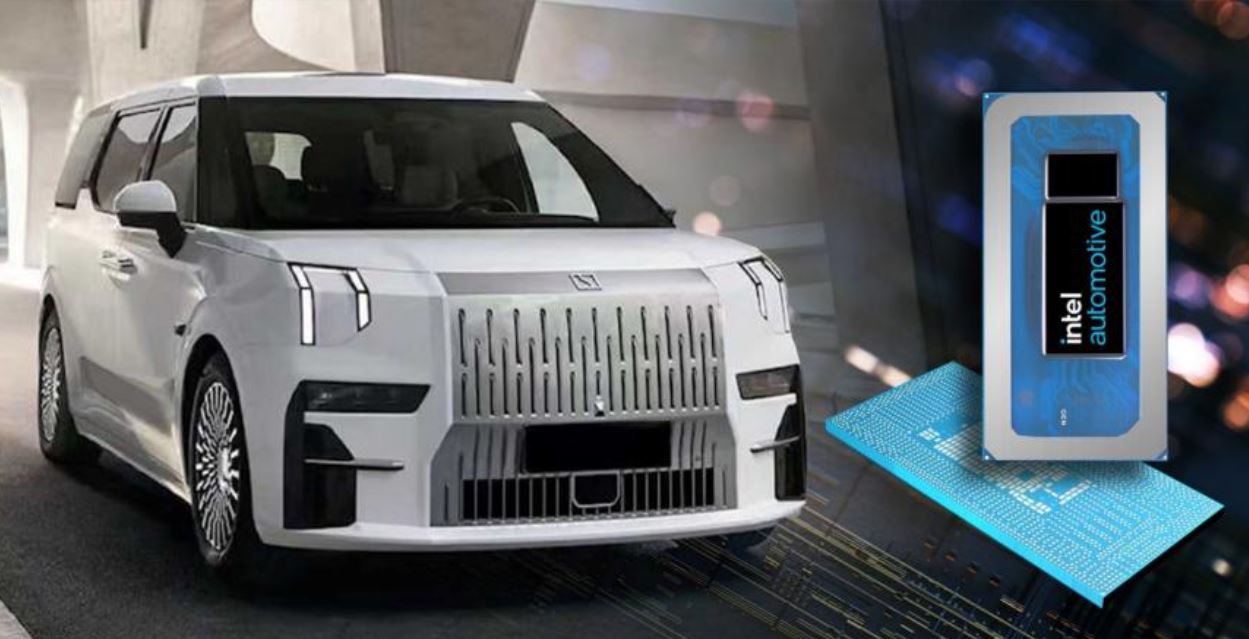In a bid to penetrate the semiconductor market for future cars, Intel announced on Tuesday its plans to introduce automotive versions of its latest AI-enabled chips. This move will position the renowned tech company in direct competition with Qualcomm and Nvidia, significant players in the industry.
To power the brains of next-gen vehicles, Intel aims to enhance overall speed and performance, Reuters reported.
Intel's Acquisition of French Startup Silicon Mobility
US News noted that to bolster its presence in the automotive sector further, Intel revealed its acquisition of Silicon Mobility, a notable French startup. Silicon Mobility designs cutting-edge system-on-a-chip technology and software for controlling electric vehicle motors and onboard charging systems.
Although the purchase price for this privately held company, overseen by venture funds Cipio Partners and Capital-E, remains undisclosed, its addition to Intel's portfolio signifies its commitment to innovation and expansion in the electric vehicle market.
Chinese automaker Zeekr has been selected as the first to utilize Intel's innovative AI system-on-a-chip. The integration of this technology aims to create an unparalleled "enhanced living room experience" within vehicles.
Intel's automotive business chief, Jack Weast, shared this exciting news ahead of the CES technology show in Las Vegas, emphasizing the inclusion of AI voice assistants and video conferencing capabilities in future vehicles.
Intel's Automotive System-on-a-Chip Products
Expanding upon the success of its recently launched AI PC technology, Intel addresses the specific performance and durability requirements of automobiles with its new automotive system-on-a-chip products.
Weast explains that these chips are meticulously adapted to meet the demands of sophisticated infotainment systems, automated driving technology, and complex dashboard displays. Intel's extensive experience supplying chips for infotainment systems in 50 million vehicles places them at the forefront of automotive innovation.
Rivalry With Nvidia and Qualcomm
Despite having supplied a significant number of chips for infotainment systems, Intel found itself overshadowed by Nvidia and Qualcomm in the rapidly growing market for powerful semiconductors central to automated driving technology, upgradeable vehicle system software, and intricate dashboard displays.
In an attempt to differentiate itself from competitors, Intel plans to offer chips that can be seamlessly integrated across all vehicle models, ranging from entry-level to premium.
Nvidia allied with Taiwan's MediaTek to offer cost-effective chipsets, primarily targeting lower-priced vehicles. MediaTek boasts expertise in supplying technology for Android-based infotainment displays.
Meanwhile, China's surging electric vehicle market has become a battleground for chip makers as local automakers strive to incorporate advanced infotainment systems and automated driving capabilities. Notably, Zeekr is a customer of Intel and Nvidia's cutting-edge technologies.
Highlighting versatility and customer-centricity, Intel states its willingness to accommodate automakers' preferences regarding technology for automated driving or other functions.
Intel will not impose the use of advanced driving chips designed by its former Mobileye unit. Instead, automakers can opt to have Intel integrate their chiplets at a lower cost, allowing for specific functions tailored to their requirements.
Photo: Intel Newsroom



 Trump Pushes Tech Giants to Build Power Plants to Offset AI Data Center Energy Costs
Trump Pushes Tech Giants to Build Power Plants to Offset AI Data Center Energy Costs  Anthropic Resists Pentagon Pressure Over Military AI Restrictions
Anthropic Resists Pentagon Pressure Over Military AI Restrictions  Amazon’s $50B OpenAI Investment Tied to AGI Milestone and IPO Plans
Amazon’s $50B OpenAI Investment Tied to AGI Milestone and IPO Plans  Boeing Secures $166.8 Million U.S. Navy Contract for P-8A Engineering and Software Support
Boeing Secures $166.8 Million U.S. Navy Contract for P-8A Engineering and Software Support  Panama Investigates CK Hutchison’s Port Unit After Court Voids Canal Contracts
Panama Investigates CK Hutchison’s Port Unit After Court Voids Canal Contracts  Coupang Reports Q4 Loss After Data Breach, Revenue Misses Estimates
Coupang Reports Q4 Loss After Data Breach, Revenue Misses Estimates  Trump Orders Federal Agencies to Halt Use of Anthropic AI Technology
Trump Orders Federal Agencies to Halt Use of Anthropic AI Technology  FAA Plans Flight Reductions at Chicago O’Hare as Airlines Ramp Up Summer Schedules
FAA Plans Flight Reductions at Chicago O’Hare as Airlines Ramp Up Summer Schedules  Paramount Skydance to Acquire Warner Bros Discovery in $110 Billion Media Mega-Deal
Paramount Skydance to Acquire Warner Bros Discovery in $110 Billion Media Mega-Deal  Middle East Airspace Shutdown Disrupts Global Flights After U.S.-Israel Strikes on Iran
Middle East Airspace Shutdown Disrupts Global Flights After U.S.-Israel Strikes on Iran  Lynas Rare Earths Shares Surge on Strong Half-Year Earnings and Rising Global Demand
Lynas Rare Earths Shares Surge on Strong Half-Year Earnings and Rising Global Demand  OpenAI Pentagon AI Contract Adds Safeguards Amid Anthropic Dispute
OpenAI Pentagon AI Contract Adds Safeguards Amid Anthropic Dispute  Samsung Electronics Stock Poised for $1 Trillion Valuation Amid AI and Memory Boom
Samsung Electronics Stock Poised for $1 Trillion Valuation Amid AI and Memory Boom  APEX Tech Acquisition Inc. Raises $111.97 Million in NYSE IPO Under Ticker TRADU
APEX Tech Acquisition Inc. Raises $111.97 Million in NYSE IPO Under Ticker TRADU  Trump Warns Iran as Gulf Conflict Disrupts Oil Markets and Global Trade
Trump Warns Iran as Gulf Conflict Disrupts Oil Markets and Global Trade  Hyundai Motor Plans Multibillion-Dollar Investment in Robotics, AI and Hydrogen in South Korea
Hyundai Motor Plans Multibillion-Dollar Investment in Robotics, AI and Hydrogen in South Korea  Meta Encryption Plan Sparks Child Safety Concerns Amid New Mexico Lawsuit
Meta Encryption Plan Sparks Child Safety Concerns Amid New Mexico Lawsuit 































